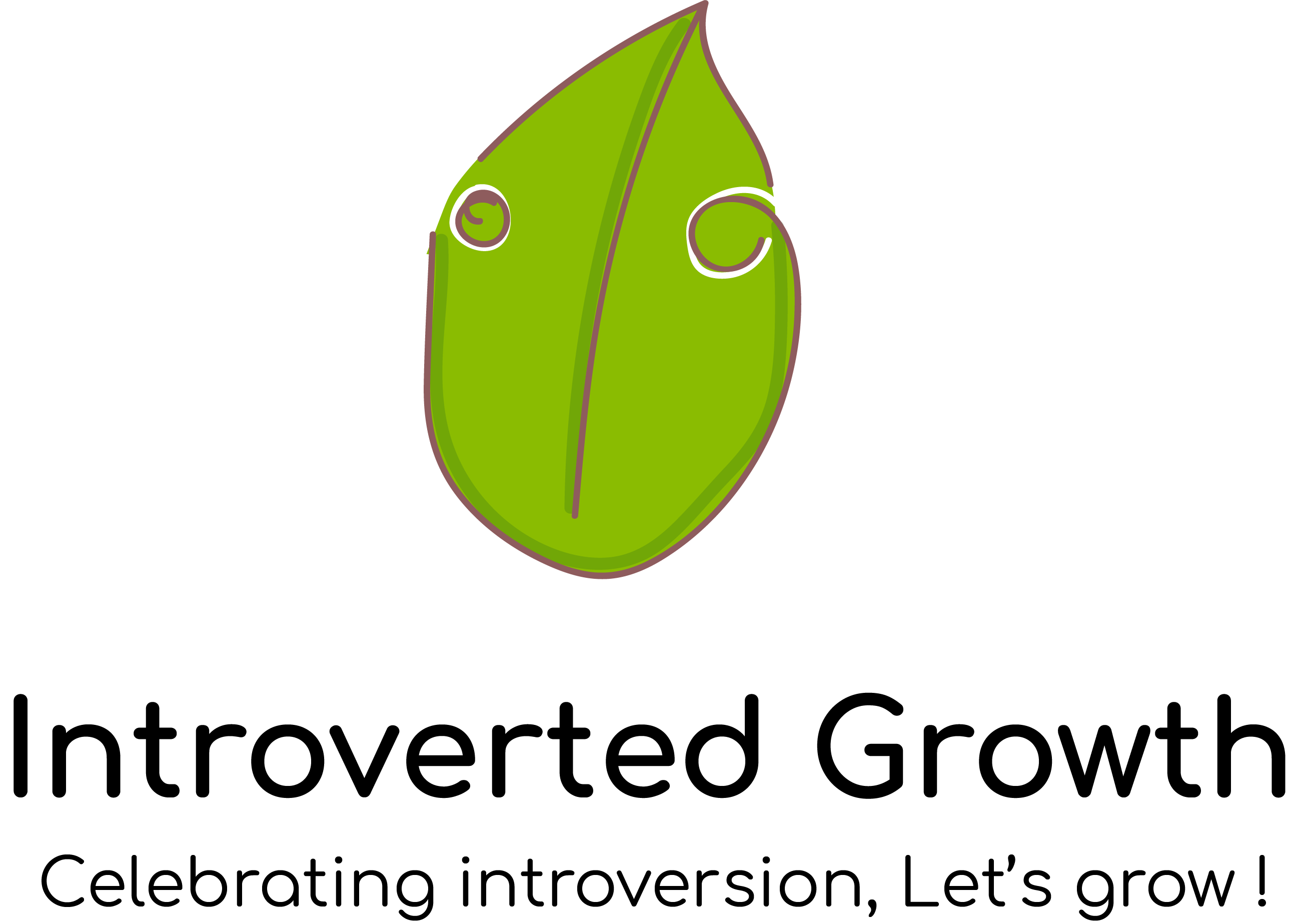Introversion and extroversion are a spectrum of personality traits that ultimately define a person’s character and behaviors.
Some people possess traits that make them predominantly introverts, like being overwhelmed in an overstimulating environment no matter what social context they’re in. Others possess traits that land them right on the extrovert side of the spectrum. Then there’s you, confused and frustrated because you can’t figure out which one of these two extremities you belong to.
If you feel like you’re not totally introverted and you’re also not that extroverted, then you’re probably an outgoing introvert.
Outgoing Introvert Meaning?
First of all-and before we dive into an outgoing introvert’s meaning. You need to know that people’s psychological behaviors are not fixed. Therefore, we can’t label people as either pure introverts or extroverts.
Most people, in fact, fall in between the introversion-extroversion spectrum. The ones who exhibit both introverted and extroverted traits are considered outgoing introverts.
An outgoing introvert is someone whose behavior changes according to the situation they’re in. They’re adaptive to different social settings and have a more psychologically and emotionally stable personality compared to others who have personalities dominated by either introverted or extroverted traits.
Outgoing introverts can gain their energy from both having alone-time and interacting with people and what gives them more privilege is that they’re both inwardly and outwardly focused. In other words: they are able to process out loud as well as internally. This is most advantageous professionally because an outgoing introvert can thrive in careers that require both working in groups and alone in the workplace.
Outgoing Introvert vs Ambivert
The term ambivert is just another synonym for outgoing introvert. You know, people who can use both their hands with equal dexterity are called “Ambidextrous”.
A similar term applies to people who can exhibit both introverted and extroverted traits together. They are called “Ambiverts” and psychologist Hans Eysenck was the one who coined this term in 1947.
Unlike the term omnivert, which means a person who exhibits both introverted and extroverted traits but not at the same time. for omniverts, there’s no in-between.
So there is actually a difference between ambiverts (outgoing introverts) and omniverts.
10 Signs You’re an Outgoing Introvert
Not sure how to go about confirming you’re an outgoing introvert? You can start by making sure you already possess most of these personality traits and signs that are common among outgoing introverts.
-
You’re overwhelmed in Formal places but thrive in familiar ones.
Think about when you attend social gatherings that are more or less formal and full of complete strangers, say for example networking events or charity dinners in those fancy hotels. You feel out of place and awkward. While you enjoy going to a friend’s house party or a family wedding.
-
You’re not bothered by small talk but prefer a more meaningful one-on-one.
Unlike the average introvert, who sees small talk as modern torture. An outgoing introvert is pretty much fine engaging in small talk, but they’re not really interested in the Weather or how was their colleague’s day so far. Rather, they prefer to dive into an interesting topic and have a meaningful discussion about it.
-
You don’t shy away from crowds but must adapt first.
Initially, you will find crowded places like subway stations and small parks to be overwhelming and draining, but after a couple of times being in these places you get used to the hustle and you eventually expect to see the crowd in such places.
So you don’t get bothered walking among crowds anymore. You probably won’t even notice the crowds.
-
You love people, oh but sometimes you can’t stand to be around any of them.
You’re a social person. You like socializing and throwing jokes here and there during meetings. You even plan friends get-togethers or girl-nights at your house sometimes. But the thing is- this overly positive social attitude and company-loving, gregarious persona can’t last for extended periods of time.
You eventually grow tired of people- especially if you had a negative social encounter. You get extremely agitated with voices, lose focus easily and, overall get tired. That’s when you need to retreat indoors and have some “me time”.
-
You get energized by both socializing and spending time alone.
This really depends on the social context you’re put in. Sometimes you attend a party and the atmosphere, the music, the people you encounter there, leave you feeling ten times better after leaving the party. Other times, sitting on the couch binge-watching ‘friends’ for the 100th time will take the edge off of you and leave you- sated.
-
You hate phone calls.
There’s no playing around with this if you’re an introvert. Even an outgoing introvert will support our case when it comes to virtually bashing phone calls in the 21st century.
An outgoing introvert will be fine conversing with people in person, but they prefer- not so intentionally -missing a phone call rather than answering it and ending up involved in an awkward conversation on the phone.
Texting is good. Texting is the trend.
-
You have no problem raising your hand in class or voicing your opinion, you just don’t make a show of it.
Unlike “typical” introverts, you don’t shy away from answering in class. And you have no problem making your voice heard when needed. You actually don’t have what I like to call the “people won’t care anyway” syndrome.
You’re also not the kind of person who likes to steal the mike in group settings or dive into a discussion about something you know next to nothing about just to draw some attention to you.
-
You need your alone time in a relationship.
One of the most positive aspects of dating an outgoing introvert is that they can understand and relate to their partner’s personality type whether they have introverted traits or extroverted ones.
As an outgoing introvert. You can be charming, attentive, and openly romantic on a date with your partner. But then you’ll want to just have some time for yourself and not be pressured to go out or even spend the time together indoors.
It usually doesn’t last for long compared to an average introvert but still, your alone time is crucial for your relationship to stay healthy.
-
You’re a great verbal communicator, but you’re also deeply reflective and introspective.
Being an outgoing introvert. You can probably do public speaking and get people hooked to every word you say. You can be verbally persuasive and get others to follow you.
That’s because you can process inwardly and outwardly. You’re reflective and ponder on the meaning of things and feelings. But you also can effectively communicate these thoughts and feeling with the outer world.
-
And lastly, people will always argue that you’re an extrovert.
Being the way you are, people will find it hard to believe you’re an outgoing introvert. You’re social and charming. They can’t label you as a hermit! That’s reserved for true introverts, not you!
And so, they will always argue that you’re an extrovert. You just don’t know your personality better than them, or you just want to ride the introvert Revolution going on lately in western society.
I always say that stereotypes are made to stop the brain from processing facts and looking for more logical truths. So it’s up to us to either follow them or leave them behind us and use our brains the right way.
Don’t bother with where people want to put you. Look for who you are, read books, get to know yourself and where you belong, for you to finally be able to move forward. And grow.
The Challenge of Embracing Your Dual Nature
One of the biggest challenges facing outgoing introverts is that their personalities can be misunderstood. People often expect introverts to be quiet and reserved, while they expect extroverts to be loud and outgoing.
As an outgoing introvert, you may feel like you don’t quite fit into either category. Embracing your dual nature can help you navigate these misconceptions and feel more comfortable in your own skin.
Feeling Misunderstood
Outgoing introverts often feel like they don’t fit in anywhere. They may be too outgoing for introverted friends, but too introspective for extroverted ones. It can be challenging to explain your personality to others, especially if they don’t understand the nuances of introversion and extroversion.
Struggling to Find a Balance
Finding a balance between socializing and alone time can be difficult for outgoing introverts. While they enjoy being around people, they also need time to recharge their batteries. It can be challenging to find the right balance between these two needs.
Feeling Overwhelmed
Outgoing introverts may enjoy socializing, but they can also feel overwhelmed by large crowds or noisy environments. It can be hard to express this discomfort without coming across as antisocial or ungrateful.
Feeling Like You Have to Choose
Outgoing introverts may feel like they have to choose between being true to their introverted nature or fitting in with outgoing friends. It’s important to remember that you don’t have to choose between the two. You can be both outgoing and introverted, and finding a balance between the two is possible.
By embracing your dual nature, you can learn to appreciate the strengths and challenges that come with being an outgoing introvert. Remember that your unique personality is a gift, and there is no one “right” way to be.
FAQs
What are the 4 types of introverts?
The four types of introverts are social, thinking, anxious, and restrained. Social introverts enjoy socializing but also need time to recharge. Thinking introverts prefer deep thinking and introspection. Anxious introverts can feel overwhelmed in social situations and may struggle with anxiety. Restrained introverts are reserved and can have difficulty expressing themselves.
What is the most outgoing introvert?
The most outgoing introvert is someone who enjoys socializing and has good social skills, but also needs alone time to recharge. They can be mistaken for extroverts because of their ability to interact with others and participate in group activities, but they still prefer a quieter, more low-key lifestyle.
What is the difference between an outgoing introvert and a shy extrovert?
The difference between an outgoing introvert and a shy extrovert is that outgoing introverts can socialize and interact with others, but they also need time to themselves. Shy extroverts may have a desire to socialize but feel anxious or self-conscious in social situations, whereas outgoing introverts can enjoy socializing but also feel drained by too much stimulation.
Are introverts loners?
No, introverts are not necessarily loners. While introverts do require time alone to recharge, they still have meaningful relationships and enjoy socializing. Introverts simply have a different approach to socializing than extroverts, and they may prefer smaller groups or one-on-one interactions. Being introverted is a personality trait, not a reflection of social skills or a desire for social connection.
Conclusion
Did you enjoy reading our article on outgoing introverts and the unique challenge they face? We hope it provided valuable insights and perhaps even helped you better understand yourself or someone you know.
If so, we encourage you to share this article with your friends and family. By sharing this information, you can help spread awareness and understanding about the complexities of ambiverted personalities.






